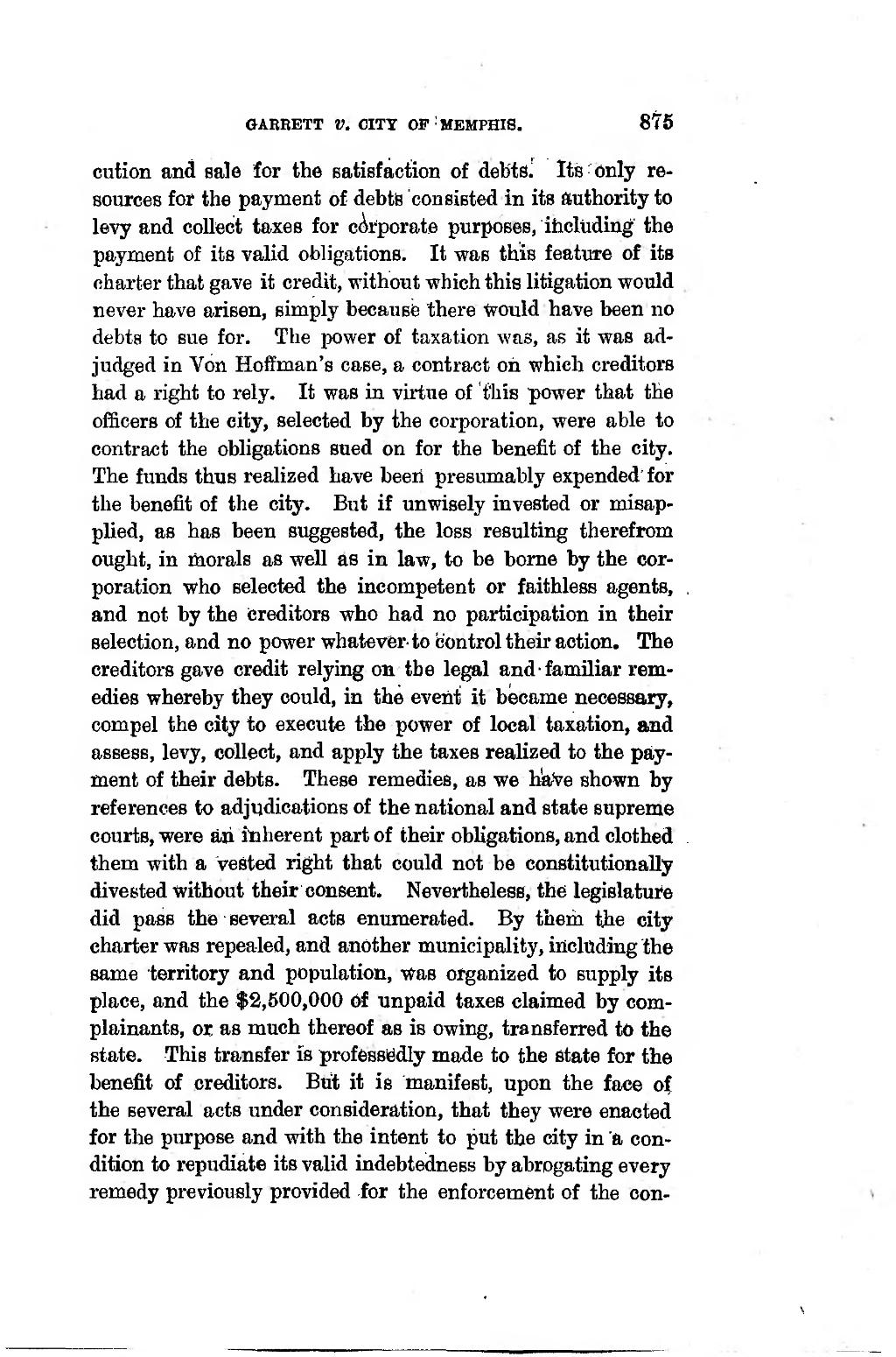GAREETT V. CITÏ OF ■ MEMPHIS. 876 �cution and sale for the satisfaction of deb'ts. Its Only re- sources for the payment of debtB consisted in its authority to levy and collect taxes for c(^ïporate purposes, ifacltiding the payment of its valid obligations. It was this feature of its charter that gave it credit, withont which this litigation would never have arisen, eimply because there •*FOuld have been no debta to sue for. The power of taxation was, as it was ad- judged in Voû Holïman's case, a contract on which creditors had a right to rely. It was in virtue of this power that the of&cers of the eity, selected by the corporation, were able to contract the obligations sued on for the benefit of the city. The funds thus realized have beeri presumably expended for the benefit of the city. But if unwisely invested or misap- plied, as has been suggested, the loss resulting therefrom ought, in morals as well as in law, to be borne by the cor- poration who selected the incompetent or faithless agents, and not by the ereditors who had no participation in their selection, and no power whateverto control their action. The creditors gave credit relying on the legal and familiar rem- edies whereby they could, in the event it became necessary, compel the city to execute the power of local taxation, and assess, levy, collect, and apply the taxes realized to the pay- ment of their debts. These remedies, as we hWve shown by references to adjudications of the national and state supreme courts, were àai itiherent partof their obligations, and clothed them with a vested right that could not be constitutionally divested without their consent. Nevertheless, the legislature did pass the several acts enumerated. By theru the city charter was repealed, and another municipality, including the same territory and population, was organized to supply its place, and the $2,500,000 of unpaid taxes claimed by com- plainants, or as much thereof as is owing, transferred to the state. This transfer is professëdly made to the state for the benefit of creditors. But it is manifest, upon the face of the several acts under consideration, that they were enacted for the purpose and with the intent to put the city in a con- dition to repudiate its valid indebtedness by abrogating every remedy previously provided for the enforcement of the ûon- ����
